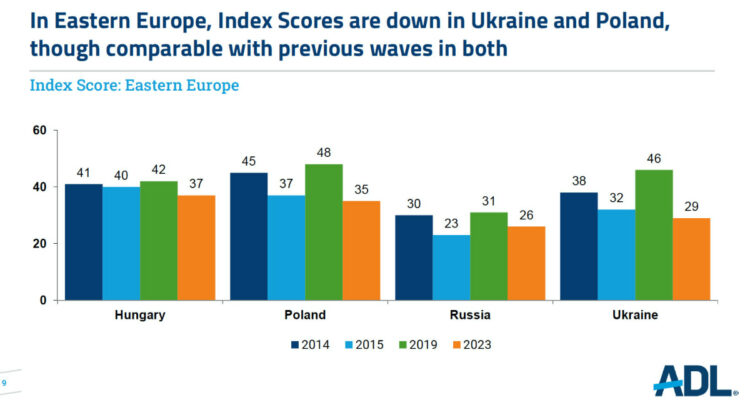A new survey measuring anti-Semitic attitudes across 10 European countries includes a surprising – and welcome – finding.
In the Eastern European countries of Hungary, Poland, Ukraine and Russia, where pernicious stereotypes of Jews have historically been higher, there was a marked decrease in antisemitic attitudes since 2019, when the survey was last fielded.
Among those countries, the decrease was most pronounced in Ukraine – where the percentage of the population harboring anti-Semitic attitudes fell from a high of 46 per cent in 2019 to 29 per cent in 2023.
Call it the Zelenskiy effect.
“The dramatic improvement in antisemitic attitudes in Ukraine seems linked to the popularity of President [Volodymyr Zelenskiy], a leader who is both proudly Jewish and public about his heritage,” said Jonathan Greenblatt, chief executive of the Anti-Defamation League, which released the survey on Wednesday.
“While the survey findings do not directly address questions of causality, there’s no doubt that having a Jewish president who is being praised for his response to Russian aggression seems to have affected perceptions of Jews among ordinary Ukrainian citizens,” Greenblatt said in a statement.
Zelenskiy, with his trademark combat boots, khaki pants and green T-shirt, has come to personify the nation’s courage and determination in the face of the Russian assault. As arguably the world’s most famous Jew, he may be contributing to a decline in anti-Semitic attitudes not only in Ukraine but also in neighbouring Poland to the west and Russia to the east.
Read the article by Yonat Shimron in Sight Magazine.

